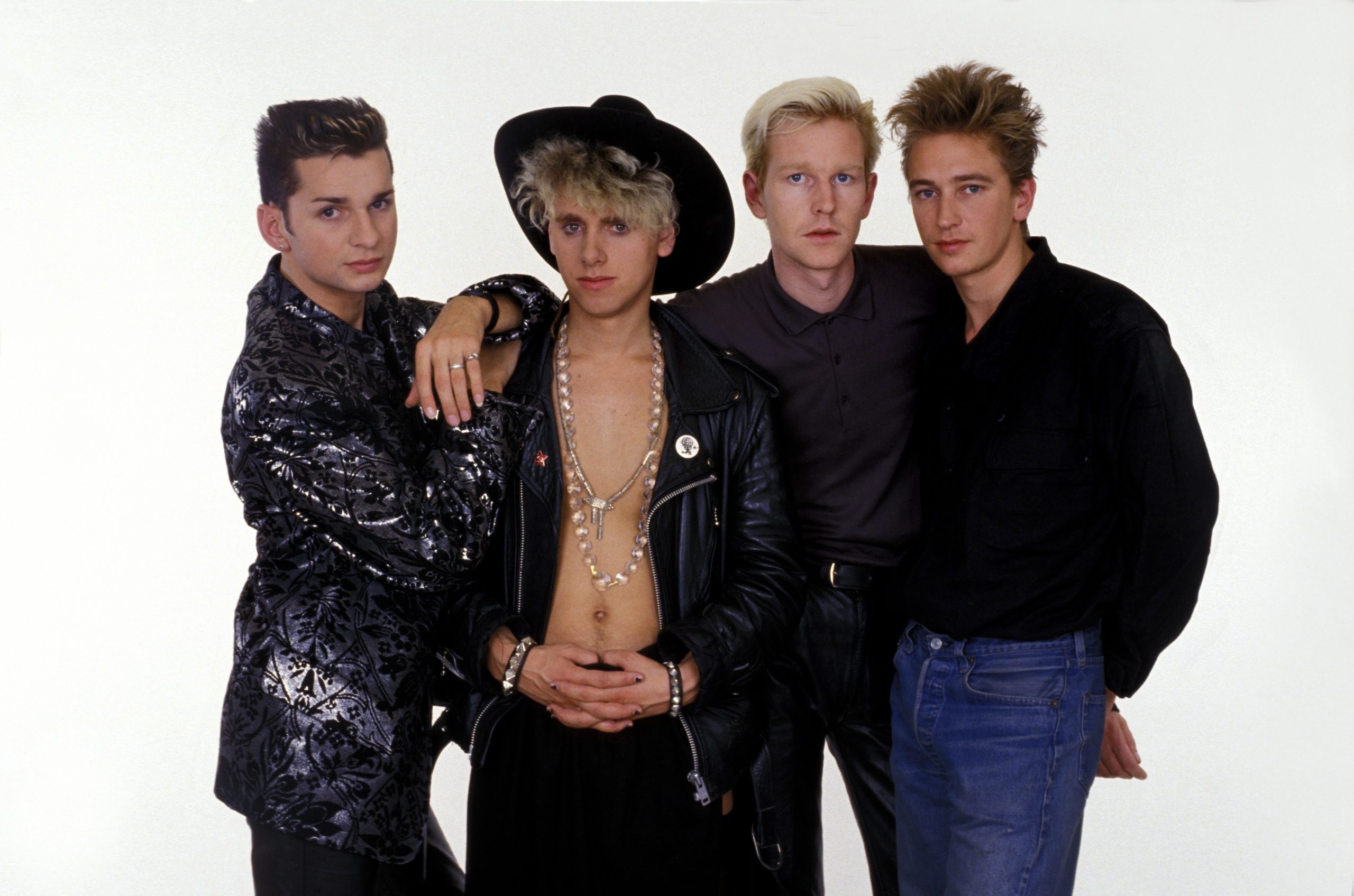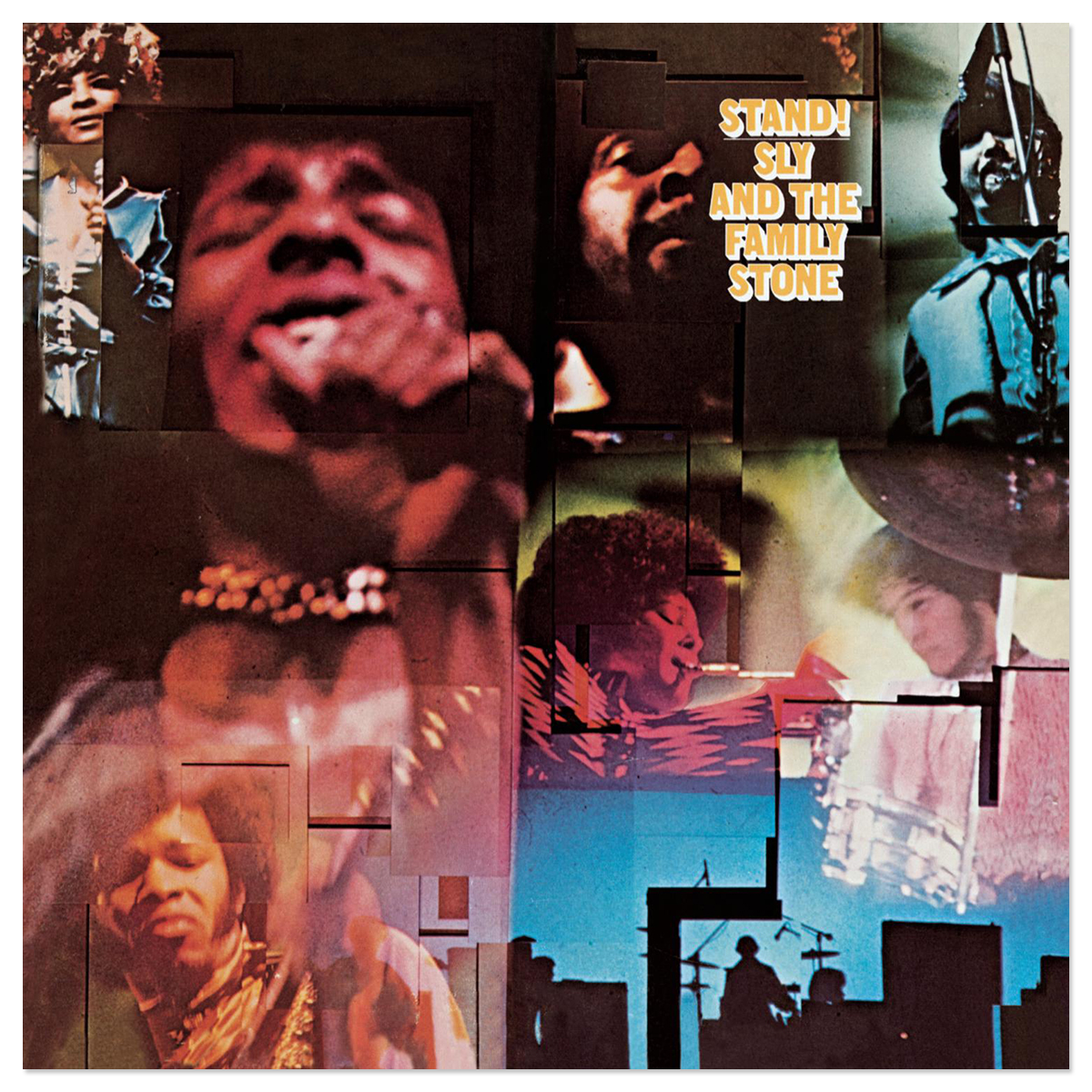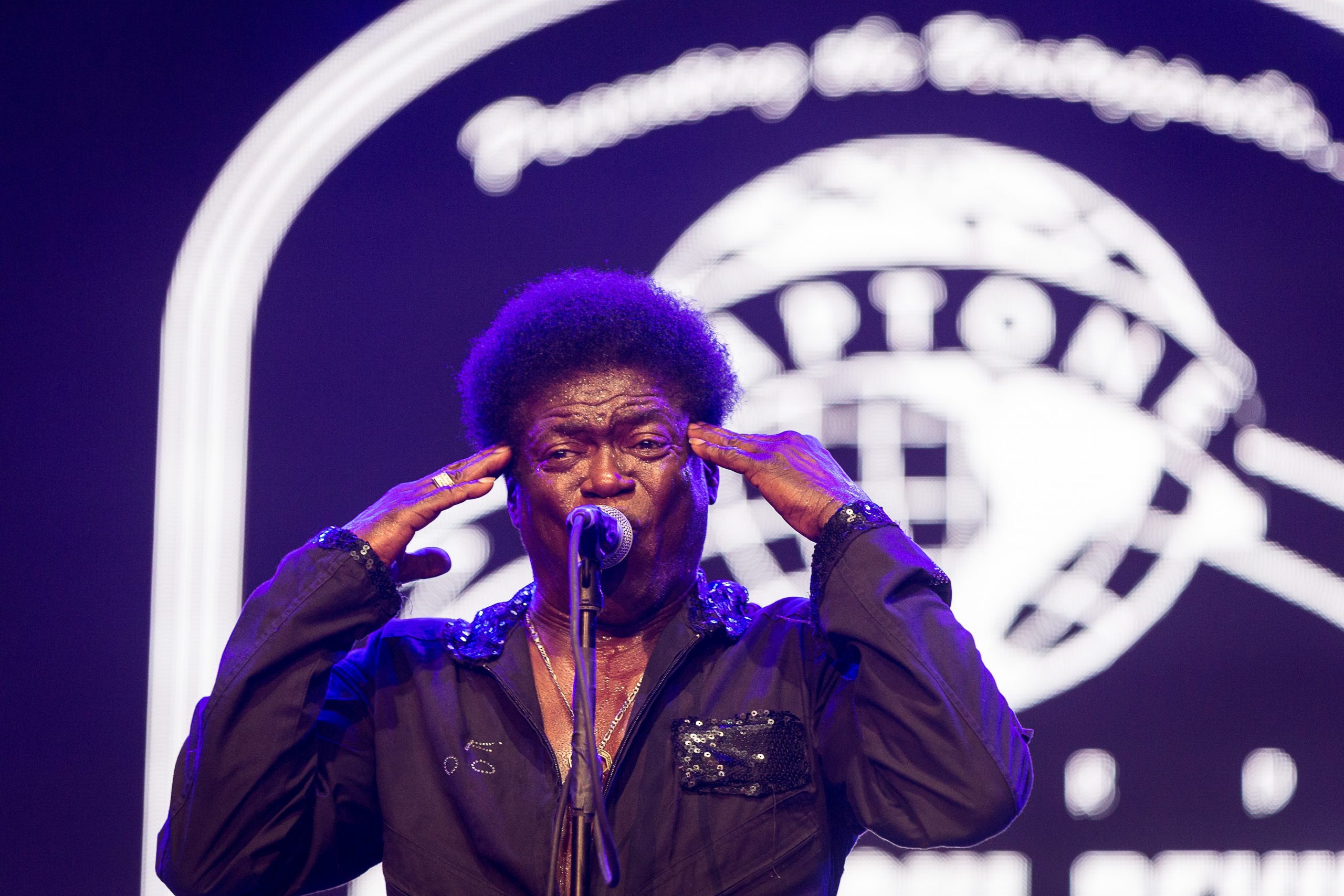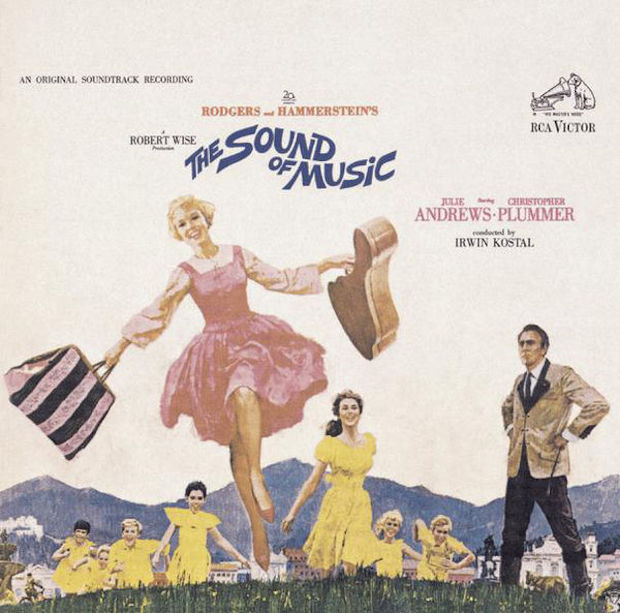Here's a phrase that tends to bug me when it comes up in music criticism: "style over substance." It's usually thrown around when a writer wants to talk about how a band's flashy but doesn't have much to say, or how they've got some high concepts but no real complexity to them, or even just how they make music to dance to instead of just sit there while you pore over the lyric sheet.
Apart from whatever it is that's supposed to constitute "substance" in this equation -- new ideas done daringly or old ones done well, impassioned protest or detached cool, muso complexity or three-chords-and-the-truth simplicity -- it implies that style isn't substance in itself, that it's a surface-level affectation of ephemeral fashion meant to hit the clearance racks within a year. But in those terms, style really is substance, in that it's something at odds enough from the day-to-day workings of normal utilitarian experience that it actually stands out and leaves an impression. And often that impression lingers enough that it defines the character of its time more than the stuff that the mainstream sensible-shoes world ever could.
Depeche Mode have found themselves on the wrong end of that style/substance false dichotomy since about, oh, 1981 or so. Maybe that's by slyly subversive design -- the band named themselves after a French fashion magazine, but misinterpreted its title as Fast Fashion rather than Fashion Dispatch, and they've been letting their detractors awkwardly ricochet off them ever since. (David Fricke dismissing them and synthesizer music in general as just another "English Pop-music [...] six-month fad" in his as-it-happens roundup of synthpop's class of '81 isn't as notorious as Decca dismissing the Beatles with "guitar groups are on the way out," but as sentiments go it definitely can't see past its own navel.)
But the substance was there, too -- if it wasn't, their songs wouldn't translate so well to other styles. Here's eight examples of how it's been done.
Nearly God, "Judas" (1996)
For a brief but exciting flash in the '90s, Tricky was popular music's anxiety poet laureate, a trip-hop genre-definer who did his damnedest to shake that label off the moment it was attached to him. Once he graduated from Massive Attack vocalist to full-fledged solo phenom on 1995's debut Maxinquaye, the instant acclaim and movement-vanguard status became both an opportunity and a burden. His contract with Island let him put out an album a year under a(nother) pseudonym, and a record like Nearly God (credited to same) gave him a chance to flesh out his discography and make something out of a few unfinished demos he thought highly of. Beyond that, it helped him work in a collaborative mode, where he was often at his best, and his choice of covers made it clear that his musical roots owed as much to Siouxsie Sioux ("Tattoo") and Sarah Vaughan ("Black Coffee") as they did to Public Enemy.
His version of Songs Of Faith And Devotion selection "Judas," released only on the US version of Nearly God, is as close as the outtakes-adjacent album gets to the same vibe as Maxinquaye, complete with a fragile, haunted but intense-sounding vocal duet with Martina Topley-Bird and drum rolls that make the love-and-war connections even more explicit than on Depeche Mode's original, more sweetly-sung and resonant version. That was the opportunity; the burden was in finding out where to go next that would help him shake off everyone else's preconceptions. In that sense, watching him lose that intial spark over the decades while still searching for new avenues of style makes a line like "You can fulfill/ Your wildest ambitions/ And I'm sure you will/ Lose your inhibitions/ So open yourself for me/ Risk your health for me" feel as personal to Tricky as it must have to Martin Gore.
GusGus, "Monument" (1998)
There were Depeche Mode cover versions well before the mid-late '90s, but it seems like most of the really good ones started emerging just about 20 years ago, as though there had to be some sort of trial period that a post-grunge Alternative Nation had to undergo before they could finally admit an enthusiasm for them. But when it hit, it got a ton of artists under the umbrella of a band otherwise typecast as new wave synthpop for goths, so you could put together a tribute comp like 1998's For The Masses that ran the gamut from hard rock sludgebeasts Monster Magnet to psychedelic trance/house cult heroes Rabbit In The Moon without a second thought. And sure, maybe the comp could've used a second thought, uneven as it is. (Would you believe me if I told you that the piss-weak alterna-blank version of "Enjoy the Silence" was performed by a band called Failure?)
But Icelandic leftfield dance music group GusGus do a fantastic job transforming A Broken Frame deep cut "Monument" from an anxious-yet-awestruck work of drum machine minimalism to something just as wide-open-sounding yet miles deeper. The dubbed-out bass and funky drum breaks might sound even more like 1998 than the original sounded like 1982, but damn if it isn't effective.
Placebo, "I Feel You" (1999)
Placebo are already becoming a regular Gotcha Covered fixture -- thanks to the bonus disc of their 2003 Sleeping With Ghosts, I've already given some love to their versions of Kate Bush's "Running Up That Hill" and Pixies' "Where Is My Mind?", both of which were reasonably faithful but still played to Placebo's strengths of Brian Molko's decadent glam frontman style.
1993's "I Feel You," one of Depeche Mode's less-electronic, more trad-rocking hits, seems like a good fit for them in an if-it-ain't-broke mode. A '99 fan-club cassingle that made its way to their '03 Covers, their version, like the original, features big drums, bigger guitars, and huge vocals -- what's there to change? That last detail, maybe. The thing about Molko is that everything that makes his lead vocal stand out -- i.e. his adenoidal, high-pitched androgyny -- sounds nothing like the from-the-gut baritone that makes David Gahan's vocals stand out. It's a hell of a mutation, even if all it really changes is the voice; the fact that it still maintains the same intensity is a neat trick, too.
Tori Amos, "Enjoy the Silence" (2001)
Back in October of 1971, music and social critic Ellen Willis observed that one way to figure out if a song was misogynist or otherwise hung up on toxic masculinity was to imagine it performed by a woman instead of a man. While the Rolling Stones' "Under My Thumb" might've sounded more like an exercise in dick-slinging machismo than Cat Stevens' "Wild World," per her example, it's worth noting that "Under My Thumb" could still retain all its emotional power and then some with a change in pronouns and singer -- something Tina Turner proved handily just a few years later -- but, as Willis put it in relation to "Wild World," "It's hard to imagine a woman sadly warning her ex-lover that he's too innocent for the big bad world out there."
That gives the underlying premise of Tori Amos's 2001 covers album Strange Little Girls that much more depth than your usual "How will they tweak this song's style?" tribute record question. All of the songs on the album were sung by Amos from what she considered a more female perspective, ranging from the straightforward (10cc's gender- and sexuality-nonspecific "I'm Not In Love") to the deeply transformative (in her take on Eminem's "'97 Bonnie And Clyde," she sings from the perspective of the ghost of the mother Eminem's character killed and locked in the trunk of his car).
Her "Enjoy the Silence," which would sound like your typical slow-piano bummerization in less self-aware hands, fits somewhere between those two poles, where the two biggest subversions are the instrumentation -- the solo piano is treated just enough to sound uncannily mournful -- and Amos' decision to leave the "oh my little girl" line untouched, obscuring the relation of the singer and the subject. Two lovers? Mother-daughter? Amos must have explained the altered meaning somewhere, but there's still power in the nonspecificity.
Nouvelle Vague, "Master and Servant" (2009)
Here's another return Gotcha Covered engagement -- Nouvelle Vague, previously seen in this column turning the Sex Pistols' "God Save The Queen" into a bossa nova-tinged sigh of ennui. There is, of course, more where that came from, though transforming Depeche Mode's 1984 BDSM-tinged industrial crossover into something a bit more lighthearted and bouncy for their album 3 isn't quite as radical a transformation.
OK, yeah, it's nowhere near as intense, from its more leisurely tempo to its breezier arrangement, and even the simple-enough move of swapping in acoustic instruments for synthesizers would make for a tonal 180 just on its own. Melanie Pain's vocals are far too playful to be at home in some dark, leathery EDM dungeon; if there's any kink play in mind here it's somewhere between fuzzy pink handcuffs and the music video's hints at a more psychological form of dominance and submission. It's just a couple twangs shy of something in the ballpark of Ennio Morricone's "Indagine Su Un Cittadino Al Di Sopra Di Ogni Sospetto" -- but get an earful of Martin Gore on the chorus, keeping things at least a bit grounded in the source material.
Röyksopp, "Ice Machine" (2012)
Röyksopp have been putting out music for almost 20 years, which, first off, how is time even supposed to work this fast?. And second, just how underrated are they? Well, they're from Norway and they make dance-informed pop music, so there's that. Plus they've only released five albums, with 2014's The Inevitable End said to be their final full-length, which means their singles-artist rep is well-maintained but still keeps them from getting noticed by the crossover market's album-centric metrics. It's also the old situation that producer-centric musical acts always wind up in, where their vocal collaborators often get more attention than they do. (I, for one, always wind up thinking about Erlend Øye's vocals on "Poor Leno" and "Remind Me" as my immediate mental association with Röyksopp before I stop to consider what the producers' relationship to house music as a foundational means of songwriting actually does for their sound.)
And then, when you throw a cover version into the mix, that's like three different layers of identity to untangle. That is, at least if you want to get analytical -- but if you just want to hear a great pop song, they can do that for you, too. For this take on "Ice Machine," the B-side to Depeche Mode's debut single "Dreaming Of Me," Susanne Sundfør pulls off a similar trick that a lot of cover artists do with Depeche Mode songs, replacing Gahan's half-atonal lead with a more nuanced melody. And Röyksopp's arrangement fleshes out the austere blankness of the original without detracting from its alien dawn-of-synthpop fascination. This live performance precedes its 2013 release on Röyksopp's installment of the LateNightTales mix series, but the recording works even better on there, where it's turned into a gauzy time-stretched bridge between Vangelis's ambient synth soundtrack classic "Blade Runner Blues" and Jóhann Jóhannsson's elegaic violin piece "Odi Et Amo."
Ghost, "Waiting For The Night" (2013)
Swedish metallers Ghost are some danged weirdos -- facepainted heshers with a negapope frontman and a tendency to be sledgehammer camp in their theatrics. And at their initial peak of crossover potential, they even got Dave Grohl on board to produce and contribute to an EP, If You Have Ghost, some of which wound up on international and deluxe editions of their major-label debut Infestissumam beforehand.
Aside from a live version of "Secular Haze," the EP consisted wholly of covers, and next to Roky Erickson's psych wig-out "If You Have Ghosts," ABBA's operatic "I'm A Marionette," and Army Of Lovers' turbo-rococo pop-techno "Crucified," the choice of Violator minimalist masterpiece "Waiting For The Night" seems ... well, safe. But from a band that earned a lot of fans by sounding like the black metal equivalent of power pop, it's the kind of safe that crosses the plate with a walk-off run, crunchy sludge that moves like lava and burns like it, too. If nothing else, hey, it sounds a bit like a long-lost circa-1981 Blue Öyster Cult song, too.
Def Leppard, "Personal Jesus" (2018)
You know the Johnny Cash version of this one, so ... here's this. Based on my vague memories of their respective fanbases circa 1990, I'm having a hard time thinking of an unlikelier candidate to take on "Personal Jesus" than Def Leppard -- maybe KMFDM, but yeah.
What's there to say about this besides the fact that the instrumentation sounds subserviently faithful to the original except in that it piles on More Of It, in the same I Can't Believe It's Not Mutt Lange semi-replication mode they used to re-record self-described "forgeries" of their own hit records for streaming services as an end run around Universal Music Group. At least Joe Elliott sounds pretty different from David Gahan -- just not different enough to make this more than a vaguely unlikely work of live-band karaoke.






